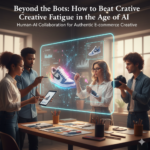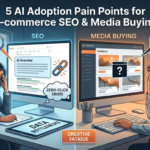Week 3 of Black History Month brings us to continue the observance in our own style of highlighting various noble pursuits, people, and businesses in the Black diaspora that we simply adore. (Check them out here: Week 1: Pack Picks [Black-owned Businesses], Week 2: Pack Peers [Black Industry Leaders].) On today’s menu: Pack Platforms & Pursuits! Or, the things we are chasing as professional allies in addition to calling out exceptional resources and support pillars available to both allies and Black community members.
In this article:
- Pack Platforms | Uplifting charities & organizations by and for Black communities
- Pack Pursuits: an Author’s Note
- Good Intentions =/= Good Results | Approaching effectively advocating for change
- Slow Your Roll ‘til You Know Your Role! | Avoiding common allyship pitfalls
- Being a Real Ally | Self-Education is
preferableimperative - Ally Resources | A delightful spread of knowledge nuggets
Pack Platforms
Uplifting charities & organizations by and for Black communities
First and foremost, there are a few specific resources that we want to celebrate. While there are many great and rising organizations out there, the following three were mentioned by Fullmoon staff by name as ones to call out for their excellence, ingenuity and dedication to their respective missions.
BECA | Black Executive CMO Alliance
Mission Statement: To provide an intimate, trusted, safe space for Black marketing C-Suite executives to share, learn, elevate, and pay it forward in order to create opportunity, access, and equality for the current and next generation of Black marketing leaders.
“We are profoundly aware of the inequality and seeming indifference that excludes Black employees from the C-Suite and leads to a lack of corporate board diversity. As members and allies, we feel an obligation to create a navigable path for Black marketers. By building a bigger, better pipeline, BECA will prepare more Black talent to advance in their careers and increase their value and contributions.”
BLCK VC | Black Venture Capital
A nonprofit organization that equips Black investors with the access, education, and community to assist in accelerating their careers, BLK VC are disruptors of their industry. Their mission is to connect, engage, empower, and advance Black venture investors, and actively push for venture capital firms to increase inclusiveness in their hiring practices, deal flow, and portfolios.
Therapy For Black Girls
Mental health resource and podcast, Therapy For Black Girls helps Black women pair with the right fit to best walk alongside their road to mental wellbeing. Their website is a self-proclaimed online safe haven dedicated to encouraging the mental wellness of Black women and girls. It also has a page acting as a media player for those who would benefit from their podcast, which has almost 300 episodes.
BACK TO TOP
Pack Pursuits: an Author’s Note
A little more on this–as a company, we are still very young and have many start-up habits that have not yet evolved into their final forms. We are still shaping the mold for a lot of things, and a lot of our conversations take place in mostly indirect or unofficial venues. You know, like Slack threads and Zoom meetings. This blog’s following material is not from a fluent understanding, but a collection of ideas, endless Google searches, new understandings from conversations with coworkers of all backgrounds, and a few spots that we may look back on in a couple years that then will feel a bit cringey.
But you know what? We’re okay with that. Because doing the best you can with what you have and the information you know at the time isn’t shameful; I’d rather be wrong trying to do good than being too scared of making a mistake and doing nothing.
Let’s let those intentions be a segue into the next section.
Good Intentions =/= Good Results
Approaching effectively advocating for change
One of the most disappointing feelings is to be actively engaged in standing up for what you believe is right just to be told you are damaging the cause. ? If you have experienced this, you may be a White anti-racist, a vessel that is packed with potential power for good. Congratulations!
A great wide-spread lie is the belief that if you don’t do something right, you should stop and give up–especially when receiving ridicule for your attempts. A great truth that is often hidden: getting to a place where you’re proficient in your endeavor is a route heavily burdened with potholes, broken bridges, failures, detours, haters, and it feels like it lasts forever… but you WILL get there, and your traveled path will become a testament of your convictions.
On the road to learning anything, ANYTHING, you are going to get some things wrong. That’s no reason to give up; in fact, getting flack about approaching things in a less than ideal way means you are trying. Trying is growing, and growing is uncomfortable. Don’t get roped into thinking that you’ve failed and oughtn’t stand up when feeling called to for fear of doing things wrong. Instead, follow your heart, do it incorrectly, and commit to continuing to learn, tweak, listen, adapt, reevaluate, and adjust accordingly.
You are a force to be reckoned with. Combine that with learned wisdom and insight, and you will be unstoppable in your own right.
BACK TO TOP
Slow Your Roll ‘til You Know Your Role!
Avoiding common allyship pitfalls
This definitely isn’t a blame game, because we’re not playing. Blaming and shaming runs rampant in times of social reform like today, and to our detriment. When I say “our”, I mean all of us as humans, and more importantly, future generations. While there may be truths inside the accusations, shaming is a proven way to drive the wedge deeper and increase the divide.
“Being held accountable and feeling shame is not the same thing as being shamed.”
– Brene Brown, PhD, Unlocking Us
Shame researcher Dr. Brene Brown explains in many of her works how shame rarely helps solve complex problems. In fact, it often invokes the opposite effect as when shamed, people become defensive, disengaged, and/or avoidant. So, let’s not do that, shall we?
Having a default understanding is not a flaw.
I’ll say it again louder for the people in the back: Your initial default understanding, the one you have right now, is not a flaw.
Let me be clear; your default understanding might be misguided, have flaws within it, and is certainly incomplete (as is e-v-e-r-y-o-n-e-s). While it may sound callous, shutting out the loud opinions may seem self-serving. It can be. It can also be a necessary step like closing the study room door in a library to block the noise so that you can focus on the task at hand. It’s not that the challenging things they are saying or have been said are unimportant or even incorrect, but allowing yourself to get dragged down by the emotions of it may harden you more and undermine your efforts.
Developing self-trust that your intentions are good, affirming you are receptive to rectifying your misconceptions, and setting your ego aside are hard enough without a constant barrage of intrusive thoughts… but they are all vital. And obtainable. Promise.
Suboptimal Roles: Anti-Ally Allies
So, how do we discover what our role is and what we should be doing? Start off by recognizing the below common roles that conflict with your efforts:
- The Devil’s Advocate
- Looks like: Acknowledge active racism as problematic; defends good or indifferent intentions behind harmful actions or outcomes; questions the weight race has in every interaction
- Damages Include: Under semblance of intellectual study, requires Black folks to defend their experiences; focus on semantics undercuts relationship building and constructive conversations; stunts personal growth
- The Guilt Tripper
- Looks like: Frozen by guilt of privilege into inaction or self pity; shamed by others or self
- Damages Include: Pulling the focus away from productive solutions through preoccupation with how they benefit from the system at the expense of others
- The Field Researcher
- Looks like: Turns to Black persons for anti-racism education; seeks out education neglecting self-education; may culturally appropriate as misguided means of bonding
- Damages Include: Putting the burden of effort onto others who already live it daily; disrespect that breeds resentments; ignores libraries full of gathered resources
- The Optical Ally
- Looks like: Social media justice warrior; public allyship actions are prioritized; self-promoting
- Damages Include: False sense of accomplishment and importance; dead weight to the cause; amplifies White voices while shirking opportunities to contribute to actual change
- The White Savior
- Looks like: Believes themselves to be a defender vs. an empowerer of BIPOC people; focus on the hardships Black individuals and communities, neglecting to celebrate their accomplishments; credit themselves when Black folks succeed
- Damages Include: Reinforces narrative that BIPOC are less intelligent, less capable, and more helpless than others; erases their stories of overcoming and becoming
- The “Good” White Person
- Looks like: Someone who defends their or others’ racism as unintentional; seeks out validation or accolades for how “un-racist” they are
- Damages Include: Invalidating or minimizing the negative experiences Black people have; hyperfocus on being acknowledged for the singular helpful things they do rather than sustainable social change
Some of these things may have surprised you, or you felt some “But what about…”s coming on. That’s okay–that’s good. That means you’re learning. For a more in-depth look into these roles, you can read here about Mistakes White Allies Make from Anti-Racism Every Day initiative.
With all these pitfalls, you may be feeling like there is nowhere safe to tread. Let me lead you to a place where bridges have been made, ready and waiting for you. ? Read on to continue the discovery of things you can do as you, and your brand, mature as an ally.
BACK TO TOP
Being a Real Ally
Self-Education is Preferable Imperative
Being a real ally means accepting that your work–both inner and outer–as an anti-racist is never done, a life-long effort. It means being okay without pats on the back or thank-yous. But it also means that it will be slow, and sometimes painful. And as a reminder, although the individual journey is yours alone, you’re in good company in the global trek towards enlightenment.
Taking the initiative to self-educate is an important step for professional allies to demonstrate empathy and respect for marginalized communities, personal growth, avoiding reinforcing harmful stereotypes, and building stronger relationships with marginalized communities. When you do this as individuals, applying this to your company will seem like the natural next step.
Self- and business-applicable education inspires through empathy and respect. Today’s consumer shows strong trends favoring brands that are socially responsible on the corporate level (reported as CSR). So, in-touch, diverse, and progressive. A stronger company presence and reputation is just the beginning. New customers–loyal, passionate ones–will be moths to your flame.
Get familiar with the terminology.
Example: Taking a phrase like “white fragility” at face-value can be damaging. (Definition: feelings of discomfort a white person experiences when they witness discussions around racial inequality and injustice.) I suffer from this white fragility myself. And I am working to understand how to not allow this to creep up and keep me silent. Having this term at my fingertips helps me to label when it is happening and signals that taking a moment to step back to introspect at what is going on is due.
Here is a Glossary of terms by Racial Equity Tools to familiarize yourself with other terminology.
Be willing to make mistakes & keep going.
There’s a lot of failure to get this stuff right, and that doesn’t have to hinder your progress. Apologizing goes a long way, and changing your actions takes it the distance. Keep striving for better.
Check-in with yourself regularly, reserving judgment.
Reflect on your behavior and attitudes consistently. Especially when an interaction goes askew, give yourself permission to step back instead of fighting back. How might your position or experiences be coloring your bias? Is your privilege getting in the way of understanding? Do a reading on your shame-o-meter, is it out of whack? Acknowledge what’s going on there, and explore it mindfully. Tweak attitudes/actions/words/etc. as necessary.
Choose anti-racism every day.
Anti-racism is active, not reactive or passive. What that will look like everyday will vary, and some days you won’t move anywhere. Others, you will gain a lot of distance covered. But the choice to have the attitude of daily anti-racism prepares you for thoughtful interactions with less effort.
Recognize and vary the narratives around you.
It’s so easy for these kinds of things to sit on the back shelf of your mind collecting dust if it isn’t a part of your everyday interactions or communities. Seek out Black voices, experiences, feelings, and narratives at the forefront of your work.
Collaborate and conversate with other allies.
As you do the work, talk to other White people who are doing the work. Share the burden of self-education with others. This not only makes it less heavy, but it exposes you to ideas and resources you may otherwise have missed out on. Cross reference with one another on how allies can step up FOR and BESIDE Black people as trustworthy allies, without crossing the line of standing in front of them.
Utilize the well-established curated resources available for self-education.
You don’t have to reinvent the wheel. There are hundreds, if not thousands, of valuable resource collections at your fingertips ranging from free library books to online groups to seminars and workshops. Save yourself some time and grief by thumbing through a few and seeing which ones stand out to you as a jumping off point, like this well-rounded Guide to Allyship.
BACK TO TOP
Ally Resources
A delightful spread of knowledge nuggets
Suit up! ? These resources are ready for you to dive in:
Books: The New Jim Crow, How to Be an Anti-Racist
Consulting: Hella Social Impact, Sweet Livity
Movies/Films/TV (true stories): When They See Us, Freedom Riders
More media: 25 extra media resources, various childrens’ books
Podcasts: Still Processing, Code Switch, #TellBlackStories
Seminar: Doing Our Own Work: An Anti-Racism Seminar for White People
Topical websites: How To Talk About Privilege To Someone Who Doesn’t Know What That Is,
Decentering Whiteness and Creating Inclusive and Equitable Conferences: A Tip Sheet
White ally group: Surj
What resources should be on this list that are glaringly obviously missing? Help us right this injustice by giving a shout on our LinkedIn page and letting us know about great ally resources your company swears by, or additional charities by Black people, for Black people that deserve recognition!










